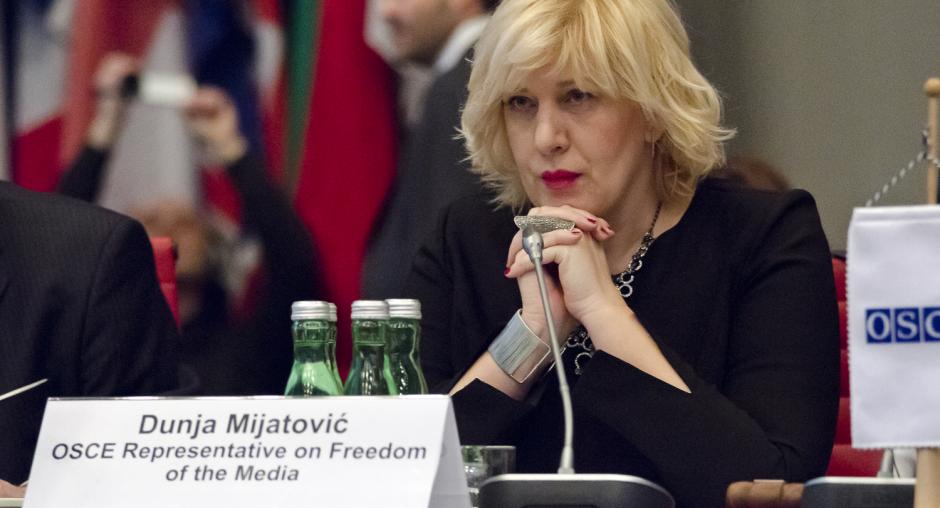Actions must be taken to ensure journalists’ safety and end impunity, OSCE Representative says at European Federation of Journalists Annual Meeting in Moscow

MOSCOW, 21 November 2014 – Ensuring journalists’ safety and breaking the cycle of impunity remain the biggest challenges to overcome for free media, OSCE Representative on Freedom of the Media Dunja Mijatović said today in a keynote speech at the European Federation of Journalists’ Annual Meeting “Journalism in Times of Conflict: Impunity, Safety & Ethics”, at Moscow’s Central House of Journalists.
“Incidentally, it was here in Moscow in 1991 where OSCE participating States agreed to adopt all feasible measures to protect journalists in dangerous missions, particularly in cases of armed conflicts,” Mijatović said.
Mijatović noted that more than 20 years on from the Moscow Meeting of the Conference on the Human Dimension of the CSCE (the forerunner to the OSCE), journalists in the OSCE region are more unsafe than ever before and more effective steps must be taken to stop the deterioration of journalists’ safety.
“We all know that current efforts to provide safety and security for members of the media are insufficient,” Mijatović said. “We can continue having meetings and agreeing on important resolutions but the grim reality is that attacks are growing exponentially and impunity is prevailing.”
In her speech, Mijatović said 56 journalists have been murdered in Russia since 1992 and in most cases there have been no arrests.
“It is the obligation of all states to prove the political will to protect journalists and I call on the authorities in Russia to show proof of their wish to stop impunity,” Mijatović said.
Mijatović also addressed the growing phenomenon of propaganda, which poses a threat to journalism as a profession, not least with the rising influence of state-run media outlets
“The phenomenon of today’s propaganda jumps to our world straight from the worst times of the Cold War 25 years after the fall of the Berlin Wall,” Mijatović said. “We are seeing history repeating itself almost as a farce, with Russian television packed with misinformation backed up by fake testimonials and videos on YouTube.”
Mijatović said that national professional media organizations and self-regulatory bodies should evaluate the state of journalism in Russia.
During her visit, Mijatović met with representatives of civil society and journalists from independent Russian media outlets, including Mikhail Zygar, editor-in-chief of the television channel Dozhd, Dmitry Muratov, editor-in-chief of Novaya Gazeta newspaper, and Aleksey Venediktov, editor-in-chief of the radio station Echo Moscow.
During the meeting with Venediktov the Representative agreed to provide assistance in drafting guidelines for Echo Moscow’s journalists on using social media platforms. Mijatović also gave a keynote speech at a roundtable seminar entitled “New Internet-related legislation in Russia as it relates to bloggers and online media”.
The OSCE Representative on Freedom of the Media observes media developments in all 57 OSCE participating States. She provides early warning on violations of freedom of expression and media freedom and promotes full compliance with OSCE media freedom commitments. Learn more at www.osce.org/fom, Twitter: @OSCE_RFoM and on www.facebook.com/osce.rfom.
